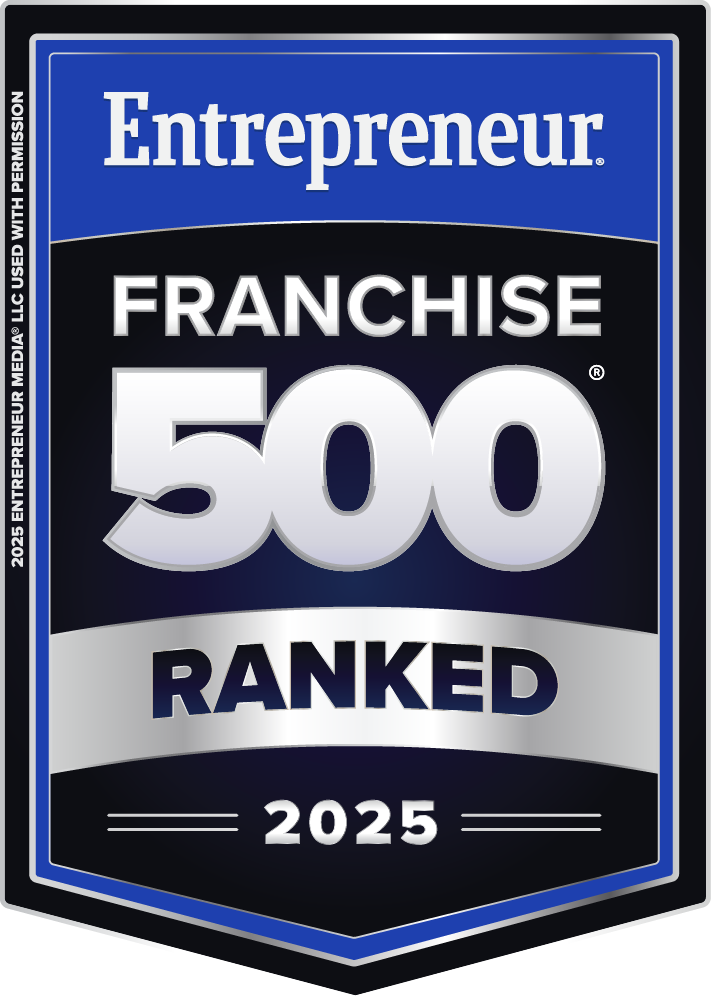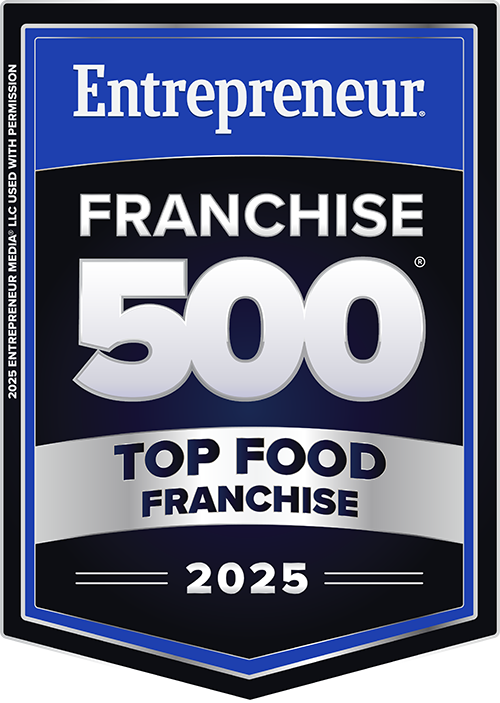Click here to read the full article
If you’re thinking about investing in a franchise opportunity, that’s a great idea, especially if it's a Church’s Texas Chicken® franchise. But if you’re new to the world of franchising, we know you might be confused by some of its terminology. Franchising is a fairly unique sphere, one that has a long history and a bit of its own language. Here, we’ll look at some common franchise terms you may be coming across, as you research franchise restaurants for sale or a fried chicken franchise opportunity, and what they mean.
Don’t let the world of franchising confuse you. Below are some of the more common terms you’ll likely come across and their definitions as you consider chicken franchise opportunities with us.
Franchisor: On the surface, a franchisor is simply the company or brand that offers a franchise opportunity to investors. But in reality, a franchisor is much more than that — or should be. A franchisor is another name for the people behind the brand. Franchisors sell the right to open stores and sell products or services using their brand name, expertise, and intellectual properties. They’re also the people who make sure their franchisees are well-trained and ready to do business as a representative of their brand — and the training and support we offer is one of the best reasons to consider Church’s Texas Chicken® when thinking about opening your own quick-service restaurant (QSR) franchise.
Franchise Disclosure Document (FDD): An FDD is a very important standardized document (1) required by the Federal Trade Commission for all franchisors to have. Our FDD is provided to serious potential investors to answer many of the questions they may have about our brand and its offering, including the history of our brand, its team leaders, the investment numbers, and what you can expect from us in the way of training and support. Investors also learn more about what’s expected of them as a franchisee and any monthly fees they’ll be responsible for.
Because our FDD is such an important document, you’ll be given at least 14 days to read it before anything can be signed, and many potential franchisees review their copy with the help of an attorney. Remember, too, that we’re always available to answer any questions you might have about the information contained in our FDD. We believe in complete transparency because an educated franchisee is our best one.
Franchise Fee: As part of the cost of becoming part of a brand family, all franchisors charge their franchisees a one-time franchise fee once they sign their franchise agreement. This fee pays for an investor’s onboarding, pre-opening training, and the right to use proprietary materials and resources. As a multi-unit investor with Church’s Texas Chicken®, you can expect to pay $15,000 as a one-time franchise fee for your first location and a $10,000 development fee. Among other things, these fees pay for your onboarding and our ongoing research and development, among other important initiatives.
Initial Investment: As with starting any new business, opening your Church’s Texas Chicken® QSR requires an investment in not only time and effort but in money as well. An initial investment refers to the total financial investment a franchisee will need to make in order to get the franchise business up and running. This sum includes all start-up costs, like the franchise fee, leases, buildouts, inventory, and so forth, and is typically represented as a range, showing low-end and high-end amounts.
Royalties: As part of how a franchisor continues to support its franchisees and grow its brand, royalties are collected each month against the gross sales of each franchise location. In our case, that fee is 5% of a franchise’s gross revenues. Among other things, this money is used to fund our ongoing support of franchisees, important menu innovations, national and regional marketing, research and development, and improved operating processes and technological innovation.
In addition to the terms and definitions above, there are some unique ones associated with investing in multi-unit franchise restaurants for sale. These include:
It’s important to have a solid understanding of the terms we’ve just outlined, and our team is available anytime to help clarify them or answer any questions you may have.
Reach out to the Church’s Texas Chicken® to find out more about why the franchise model makes such good business sense.
Investopedia; What Is a Franchise Disclosure Document (FDD)?; Will Kenton; January 4, 2023
Click here to read the full article
At Church’s Texas Chicken®, we know you have choices when it comes to investing in a quick service restaurant (QSR) franchise. We also know it’s important to do your homework before committing to a brand, and searching out the highest profit franchises makes a lot of sense. However, finding trusted and impartial information about what […]
Chicago, affectionately known as the Windy City, has long been a hub of commerce and culture, and today, its economy is enjoying real resilience, making it an attractive market for entrepreneurs looking to expand their portfolios. Opening a Church’s Texas Chicken® franchise in Chicago is a premier opportunity that allows you to tap into a […]
If you’re thinking about investing in a franchise opportunity, that’s a great idea, especially if it's a Church’s Texas Chicken® franchise. But if you’re new to the world of franchising, we know you might be confused by some of its terminology. Franchising is a fairly unique sphere, one that has a long history and a bit of its own language. Here, we’ll look at some common franchise terms you may be coming across, as you research franchise restaurants for sale or a fried chicken franchise opportunity, and what they mean.
Don’t let the world of franchising confuse you. Below are some of the more common terms you’ll likely come across and their definitions as you consider chicken franchise opportunities with us.
Franchisor: On the surface, a franchisor is simply the company or brand that offers a franchise opportunity to investors. But in reality, a franchisor is much more than that — or should be. A franchisor is another name for the people behind the brand. Franchisors sell the right to open stores and sell products or services using their brand name, expertise, and intellectual properties. They’re also the people who make sure their franchisees are well-trained and ready to do business as a representative of their brand — and the training and support we offer is one of the best reasons to consider Church’s Texas Chicken® when thinking about opening your own quick-service restaurant (QSR) franchise.
Franchise Disclosure Document (FDD): An FDD is a very important standardized document (1) required by the Federal Trade Commission for all franchisors to have. Our FDD is provided to serious potential investors to answer many of the questions they may have about our brand and its offering, including the history of our brand, its team leaders, the investment numbers, and what you can expect from us in the way of training and support. Investors also learn more about what’s expected of them as a franchisee and any monthly fees they’ll be responsible for.
Because our FDD is such an important document, you’ll be given at least 14 days to read it before anything can be signed, and many potential franchisees review their copy with the help of an attorney. Remember, too, that we’re always available to answer any questions you might have about the information contained in our FDD. We believe in complete transparency because an educated franchisee is our best one.
Franchise Fee: As part of the cost of becoming part of a brand family, all franchisors charge their franchisees a one-time franchise fee once they sign their franchise agreement. This fee pays for an investor’s onboarding, pre-opening training, and the right to use proprietary materials and resources. As a multi-unit investor with Church’s Texas Chicken®, you can expect to pay $15,000 as a one-time franchise fee for your first location and a $10,000 development fee. Among other things, these fees pay for your onboarding and our ongoing research and development, among other important initiatives.
Initial Investment: As with starting any new business, opening your Church’s Texas Chicken® QSR requires an investment in not only time and effort but in money as well. An initial investment refers to the total financial investment a franchisee will need to make in order to get the franchise business up and running. This sum includes all start-up costs, like the franchise fee, leases, buildouts, inventory, and so forth, and is typically represented as a range, showing low-end and high-end amounts.
Royalties: As part of how a franchisor continues to support its franchisees and grow its brand, royalties are collected each month against the gross sales of each franchise location. In our case, that fee is 5% of a franchise’s gross revenues. Among other things, this money is used to fund our ongoing support of franchisees, important menu innovations, national and regional marketing, research and development, and improved operating processes and technological innovation.
In addition to the terms and definitions above, there are some unique ones associated with investing in multi-unit franchise restaurants for sale. These include:
It’s important to have a solid understanding of the terms we’ve just outlined, and our team is available anytime to help clarify them or answer any questions you may have.
Reach out to the Church’s Texas Chicken® to find out more about why the franchise model makes such good business sense.
Investopedia; What Is a Franchise Disclosure Document (FDD)?; Will Kenton; January 4, 2023
We’re a bold and innovative brand that just keeps growing — and we want you to be part of it. Check out our territories map to find out where we’ve identified areas that are perfect for your Church's Texas Chicken® restaurant franchise. Then reach out to one of our franchise team members to get the conversation going.



© 2026 Cajun Funding Corp All Rights Reserved.